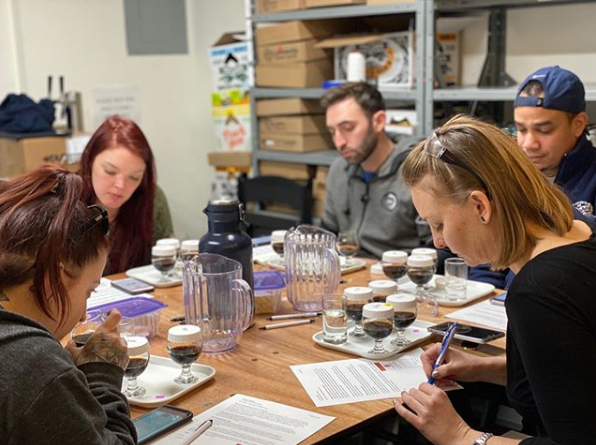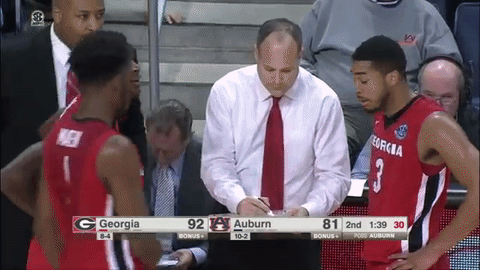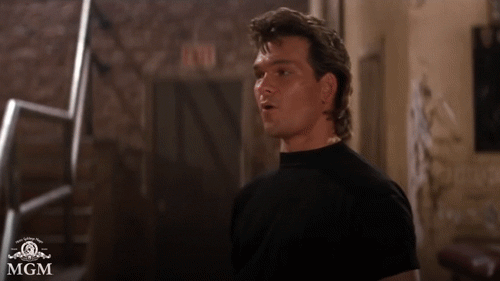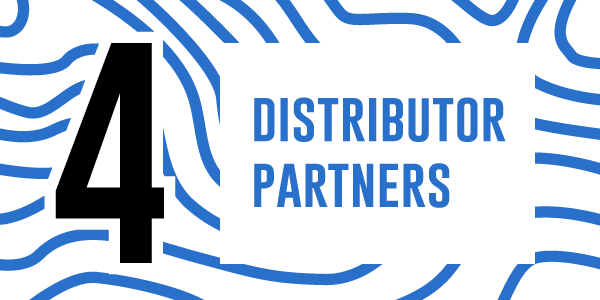4: DISTRIBUTOR PARTNERS
how to be a better partner to your distributors
This is the fourth article in the Lilypad Beer Sales Best Practices Series and Ebook curated from conversations with industry pros. The first five chapters have been released on the Lilypad blog and the next five chapters were released in an ebook in April 2020.
In our last blog we touched on the idea of building meaningful relationships with your distributors and how a firm partnership can help you advance your reach in a market. Besides the obvious statement that your distributors literally take your product to your retailers, they also serve as a great extension of your culture and have the ability to endorse your brand to retail accounts. Recall our comparison to Sam and Frodo from Lord of the Rings – you can’t possibly make it to Mordor without your distributors’ help.
During our panel discussion, we dug deeper into the idea of a symbiotic relationship. We asked the industry’s top brands about the most impactful things they do to develop these relationships and keep a share of mind with their distributors. Meghan Zachry, Director of Sales for Two Roads Brewing, kicked the conversation off by pointing out that distributors should be your first customers and your first line of defense. Building a relationship means working for and with your distributors. Meghan suggests that simply being physically available for your distributor is a great first step – go to general sales meetings, go on ride-withs, schedule calls. When your field sales team is with your distributor reps, talk to the reps about things that will build both of your businesses. Ask them what kind of tools would help them be a better salesperson, talk about what they’d like to see from their supplier. Dig into things you could do that would make their job easier or more efficient.
“Distributors are some of your most important customers, really your first customers and your first line of defense…They continue to push your brand because they feel like you’re listening to them.”
Meghan Zachry, Director of Sales, Two Roads Brewing
By pushing past small talk and engaging in open-ended conversation, you prove to your distributor that you’re not just interested in promoting your brand, you’re interested in helping them be more effective and efficient. Symbiosis means that both parties benefit from the relationship, so find out how to support your distributors’ success and they will serve as ambassadors of your brand with retailers. Even better – you just might be top of mind during important decisions with those retailers. Meghan states that her regional manager team conducts monthly, 30-minute calls with their craft brand managers so they can learn about new incentives or programs. Not only does the actual meeting facilitate communication, but it forces the distributor to think about your brand before, during, and after the meeting.

From Two Road’s Instagram
Jason Ingram, National Sales Director with Left Hand Brewing, expanded on the idea of working with your distributors by suggesting you create actual blueprints. Collect information during your meetings or ride-withs, as Meghan suggested, then organize the details into a plan that helps you communicate more effectively and track follow up items.
“We try to task our team with asking their specific distributors, ‘What is the best blueprint to work with you?’…You’d be surprised how far that can go if you’re sincere in asking and you try to stick with it.”
Jason Ingram, National Sales Director, Left Hand Brewing
But conducting meetings isn’t enough – you need to optimize the time you have with the distributor. Each rep can manage upwards of 50 brands, so use your blueprint to stay organized and on track during meetings. Be punctual, stay focused, and know exactly what you want to get out of the meeting. Have questions about products or placements? Write them down! Outline your meeting agenda and keep track of time in your meetings – you both have important business to get back to. Not only does staying organized help you work through the collective details, but it shows your distributors that you take their time seriously and helps you stand out in a crowded brand portfolio.
“You’ve got to tell them the profitability story, you’ve got to do the math in front of them, you’ve got to show them that if you’re not there selling the beer, this is how they should sell the beer and why it’s a benefit to the customer.”
Naomi Neville, Sales Director, Allagash Brewing Company
Once you’ve organized your meeting agenda or blueprint, you need to use your time effectively. Naomi Neville, Allagash Sales Director, points out that the best use of general sales meetings is to get right to business teaching your distributor how to sell your beer. Break down your team’s strategy and communicate your most valuable selling points to the distributor so they know how to handle your product in the market.

This ties into the idea of a symbiotic relationship and gives you the perfect opportunity to leverage the distributor’s coverage into a more significant market share for you.
“You need to be very efficient and you need to know exactly what you’re asking for. Obviously, you need to hold them accountable to that, but it’s very easy to get lost in the mix if you don’t have your shit together.”
Chris Russell, Vice President of Sales, CANarchy
Another excellent point addressed by Chris Russell, Canarchy VP of Sales, and agreed on by the rest of the panel, is the idea of holding your distributors accountable for what you discuss during your meetings. The point of teamwork is that both parties benefit, so you need to stay on top of the agreements you make. One of the best ways to do that is through Lilypad. We talked a lot in blog two all about goal setting, and how Lilypad can help your reps set goals that improve your brand’s market reach. Through the Placement Tracker feature in Lilypad, supplier reps have more visibility into commitments, or the “yes,” from the retailer. By using this tool, reps can streamline the communication of important details between retailer and distributor, like the date a commitment was entered, the number of days it’s been opened, or the fulfillment status. By using Lilypad to set goals, your reps can track a commitment all the way to the placement of the product on the retailer’s shelf. If there are incentives tied to these goals, the reps will certainly let you, and your distributors, know when a commitment isn’t fulfilled.
Lilypad’s Distributor Recap tool is another great way to encourage cross-tier communication and track activities and placements. Of course, when your distributor isn’t doing what they need to do to keep your relationship beneficial for both of you, it’s time to get serious – like Patrick Swayze in Roadhouse, as described by Jason. The good news is that using tracking tools like Lilypad gives you a reliable, accurate way to hold your distributor accountable for what they need to do.

At the end of the day, when building distributor relationships, remember the golden rule: treat others the way you want to be treated. In the context of the alcohol industry, this means that you need to be the rep with whom you want to work. Follow through on your commitments and do what you say you’re going to do. Above all, be friendly. You know that the distributor is juggling dozens of brands, and they’re dealing with big business challenges like inventory management, communication issues, shrinking distribution, or consolidation of distributor houses. These things influence not only their ability to do their job but also, perhaps, their mood. Show them some grace, and no matter what, take your frustration out somewhere else. Sometimes you’ll have to leave meetings with a smile, then cuss in your car, but at the end of the day, the leverage is on the distributor’s side of the relationship. Jason definitely sums it up the best:
“Be nice until it’s time to not be nice. Be nice to all of them. That’s the best way. You get more flies with honey than vinegar.”
Jason Ingram, National Sales Director, Left Hand Brewing
Actionable takeaways:
- Schedule regular meetings with your distributors that encourage open communication.
- Stay organized and make the most out of your time with your distributors.
- Set up a blueprint that guides conversation and helps you track agreements made during general sales meetings, ride-withs, etc.
- Understand that your distributors hold most of the leverage, so you need to bring value to their business too.
- Be the person others want to work with. .
- Build relationships with the distributor reps, they’ll show you love in return.
- Take advantage of the available technology to drive collaboration and hold both your team and your distributor accountable.

This article is part of the Lilypad’s Beer Sales Best Practices Series

